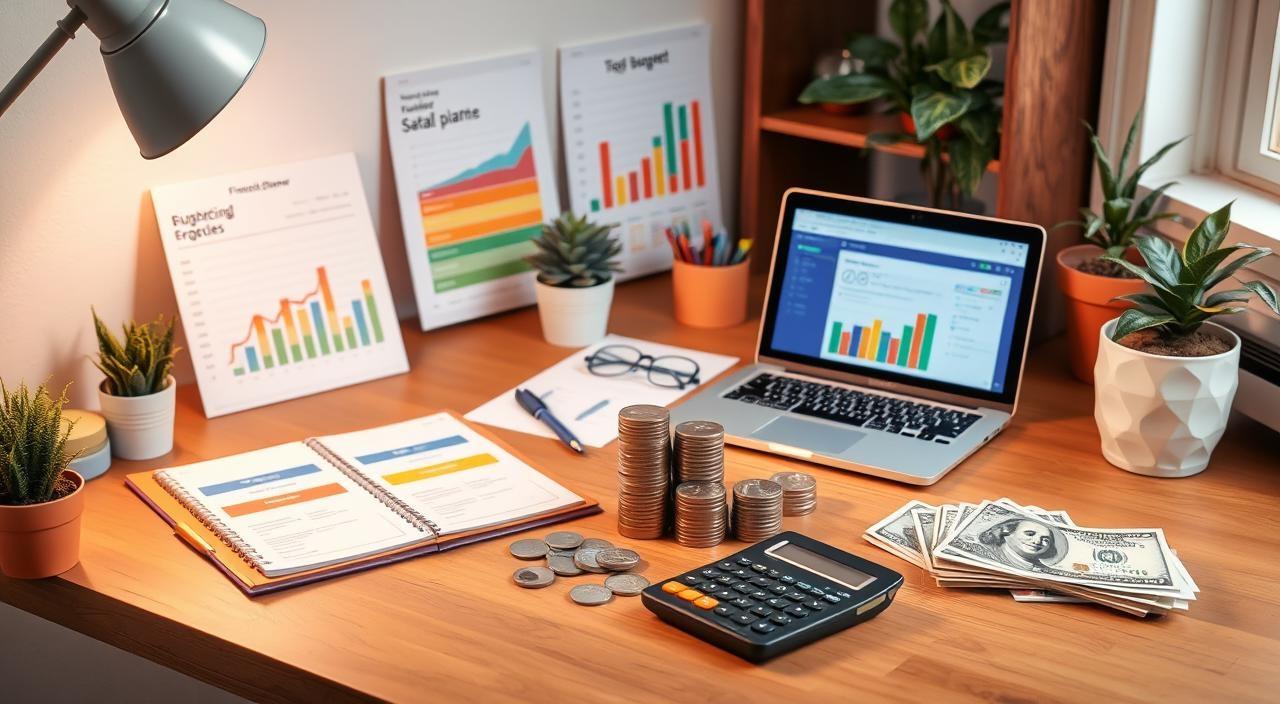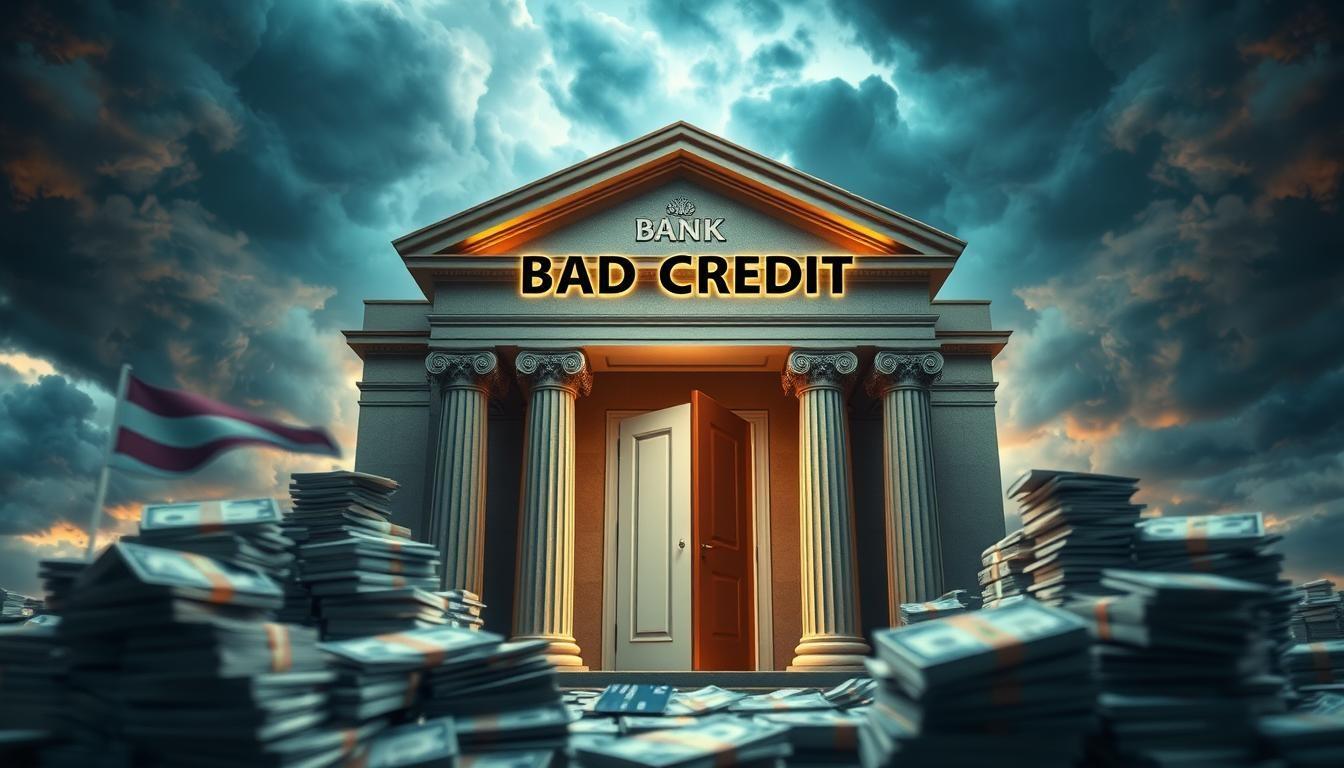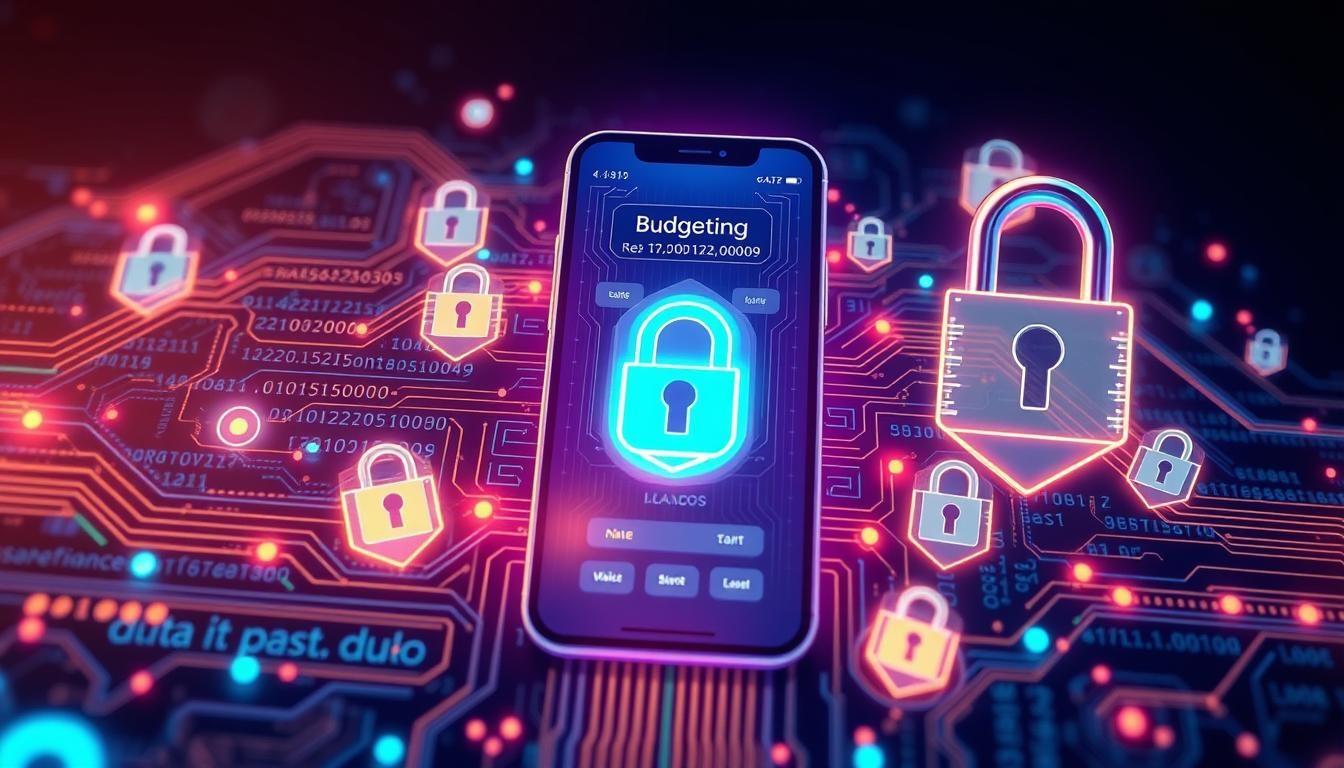Do you often struggle to make ends meet, even when you try your best with money management? If yes, budgeting might be the answer to your financial woes. This guide will cover why budgeting is crucial, share useful tips for a solid budget, and introduce you to modern budgeting tools. It’s designed for everyone, from students to homeowners, to help you manage your finances better and reach your goals.
Key Takeaways
- Understand the importance of budgeting for financial stability and success
- Learn how to create a realistic and sustainable budget that aligns with your income and expenses
- Discover effective strategies for tracking expenses and identifying areas for improvement
- Explore budgeting tools and technologies that can simplify your money management process
- Develop a plan to handle unexpected expenses and financial emergencies
Understanding the Importance of Budgeting
Creating and sticking to a budget is key to good personal finance management. It keeps you financially stable in the short term. It also brings long-term benefits that can greatly improve your financial health.
Why Budgeting Matters for Financial Stability
Budgeting gives you a clear plan for your money. It lets you make smart choices about how you spend. By tracking your spending, you can find ways to save and make sure you cover your basic needs.
This control is vital to avoid debt and unexpected costs. It helps keep your finances safe and secure.
Short-Term and Long-Term Benefits of Effective Budgeting
Budgeting offers more than just short-term stability. It helps you:
- Reach your savings goals faster, like building an emergency fund or saving for a house.
- Reduce stress and worry about money, so you can focus on other important things.
- Understand your spending better, making your financial decisions more informed.
- Build a strong financial future, ready for any unexpected money challenges.
The true value of budgeting is in its power to help you manage your finances. It gives you the tools and knowledge to control your financial future, at any stage of life.
Getting Started: Evaluating Your Income and Expenses
The first step in creating an effective personal finance planning strategy is to thoroughly evaluate your income and expenses. This process will provide you with a comprehensive understanding of your financial landscape. It lays the foundation for a successful budgeting process.
Start by making a list of all your income sources. This includes your primary job, side hustles, investments, or any other regular payments you receive. Categorize these sources to gain a clear picture of your total monthly or annual income.
Next, track your expenses by grouping them into categories. These categories include housing, utilities, transportation, food, entertainment, and miscellaneous. This will help you identify areas where you can potentially cut back or optimize your spending.
- Gather all your bank statements, credit card bills, and other financial records to ensure you account for every expense.
- Categorize your expenses into fixed (rent, mortgage, insurance) and variable (groceries, dining out, entertainment) costs.
- Consider using budgeting apps or spreadsheets to streamline the evaluating income and expenses process.
| Income Source | Monthly Amount |
|---|---|
| Salary | $4,500 |
| Investment Dividends | $250 |
| Rental Income | $800 |
| Total Monthly Income | $5,550 |
By thoroughly evaluating your income and expenses, you’ll gain valuable insights. These insights will inform the budgeting process. They will help you make informed financial decisions for your long-term personal finance planning.
Creating a Realistic and Sustainable Budget
Making a budget that fits your financial situation and goals is key to financial stability. The secret to a good budget is to track your expenses well and find ways to spend less.
Tracking Expenses and Identifying Areas for Improvement
Start by looking at your income and spending over the last few months. Sort your spending into fixed costs (like rent and bills) and variable expenses (such as food and entertainment). This will show you where you can adjust to make a better budget.
- Use budgeting apps or spreadsheets to track your spending every day, week, and month.
- Find ways to spend less, like eating out less or saving on bills.
- Check your spending habits and cut out unnecessary or impulse buys.
Prioritizing Spending and Setting Financial Goals
Now that you know your income and spending, focus on prioritizing your spending and setting financial goals. First, pay for the most important expenses. Then, set aside money for savings, paying off debt, and fun spending.
- Make short-term, medium-term, and long-term financial goals, like saving for emergencies or a down payment.
- Make sure your spending matches your priorities, helping you reach your financial goals.
- Keep checking and updating your budget as your life changes to stay on track.
By tracking expenses, finding ways to spend less, and setting financial goals, you can make a budget that meets your needs now and helps you financially in the future.
Budgeting Strategies for Different Life Stages
Budgeting changes as you go through life. It’s different for students, young professionals, families, and homeowners. Let’s look at how to adjust your budget for each stage.
Budgeting for Students and Young Professionals
Students and young professionals often have tight budgets. They need to pay for school, living costs, and maybe loans. A good budget helps manage money and avoid spending too much.
Start by tracking your income from jobs, scholarships, or internships. Then, set aside money for rent, utilities, and books.
Budgeting for Families and Homeowners
For families and homeowners, money matters more. You’ll spend on childcare, healthcare, and a home. A detailed budget is key.
It should cover all household costs, mortgage or rent, and savings goals. Think about saving for kids’ education or a new home.
| Life Stage | Key Budgeting Considerations |
|---|---|
| Students and Young Professionals |
|
| Families and Homeowners |
|
No matter your stage, budgeting must be flexible. Update your budget as your life changes. This keeps you financially stable and on track with your goals.
Personal Finance: Budgeting Tips and Tools
Managing personal finance can seem tough, but the right tools and tips can help. We’ll cover strategies and resources to make budgeting easier. This will help you reach your financial goals.
Budgeting Tips for Success
Start by knowing your income and expenses. Track your spending to find savings. Then, plan your budget based on what’s important to you. Remember, your budget should change as your life does.
- Track your income and expenses in detail
- Identify areas for potential savings
- Prioritize your spending based on needs and goals
- Regularly review and update your budget
Budgeting Tools to Simplify Your Life
There are many tools to make budgeting easier. From apps to online platforms, they make managing money simpler and fun.
| Budgeting Tool | Key Features | Pricing |
|---|---|---|
| Mint | Automatic expense tracking, budget creation, and financial analysis | Free |
| YNAB (You Need a Budget) | Zero-based budgeting, goal-based savings, and comprehensive reporting | $14.99/month or $98.99/year |
| PocketGuard | Automated spending categorization, bill tracking, and “In My Pocket” feature | Free, with premium features starting at $7.99/month |
Choosing the right budgeting tools can make managing money easier. They help you stay on track with your financial goals.
“Budgeting is the key to financial freedom. Once you have a clear picture of your income and expenses, you can start making informed decisions to improve your financial well-being.” – Jane Doe, Financial Advisor
Envelope Budgeting: A Simple and Effective Method
Managing personal finance can be tough. But, the envelope budgeting method is a timeless solution. It’s a simple way to manage cash and can help you control your spending.
How Envelope Budgeting Works
The core of envelope budgeting is its simplicity. You don’t need digital tools or apps. Instead, you put your money into physical envelopes for different expenses like rent or groceries. This way, you can see how much you have for each category, helping you stay on track with your budgeting methods.
Advantages and Drawbacks of Envelope Budgeting
- Advantages:
- It makes you more aware of your spending.
- It helps you avoid buying things on impulse.
- It simplifies managing your cash.
- It makes it easier to stick to your budget.
- Drawbacks:
- You have to use physical cash.
- It can be hard to change your spending plans.
- There’s a risk of losing or having your envelopes stolen.
Whether envelope budgeting works for you depends on your needs and situation. Knowing its pros and cons helps you decide if it fits your financial goals and lifestyle.
“The envelope budgeting system is a powerful tool for those who struggle with impulse spending and want to take control of their finances.”
Leveraging Technology for Budgeting Success
In today’s digital world, managing your money is easier than ever. There are many budgeting apps and online tools to help. These tools can track your spending, sort your expenses, and offer insights to reach your financial goals.
Budgeting Apps and Online Tools
There are many budgeting apps and tools out there. They cater to different needs and preferences. From apps that connect to your bank accounts to specialized software, they all aim to make budgeting simpler.
- Mint: This app links to your bank accounts, credit cards, and investments. It lets you track spending, set budgets, and check your financial health all in one place.
- YNAB (You Need a Budget): YNAB helps you make a detailed budget, manage your money, and understand your spending habits better.
- PocketGuard: This tool analyzes your income and expenses. It gives you real-time updates on your available funds, helping you stick to your budget and avoid overspending.
| Budgeting App | Key Features | Pricing |
|---|---|---|
| Mint |
|
Free |
| YNAB |
|
$14.99 per month or $98.99 per year |
| PocketGuard |
|
Free with optional premium features |
Using these budgeting apps and online tools can make managing your money easier. They offer insights and help you take charge of your budget. Check out these options and find the best fit for your budgeting technology needs.
Dealing with Unexpected Expenses and Financial Emergencies
Life often surprises us with unexpected expenses or financial emergencies. These can be sudden medical bills, car repairs, or broken appliances. But, with the right approach, you can manage these surprises and keep your budget on track.
Building an Emergency Fund
Creating an emergency fund is a smart way to prepare for these surprises. It’s a savings account for emergencies, helping you avoid debt. Try to save enough for three to six months of essential costs. Build it up slowly over time.
Adjusting Your Budget
When unexpected costs come up, you’ll need to tweak your budget. Look at your spending and find ways to cut back. You might reduce non-essential spending, delay some purchases, or earn extra money.
| Unexpected Expense | Average Cost |
|---|---|
| Car Repair | $500 – $1,000 |
| Medical Bill | $1,000 – $5,000 |
| Home Appliance Replacement | $300 – $1,500 |
By building an emergency fund and being ready to adjust your budget, you can handle unexpected money issues better. Stay flexible and focused on your long-term financial health.
“Expect the unexpected, and whenever possible, be the one to create the unexpected.”
– Mike Murdock
Incorporating Savings into Your Budget
Savings are key to financial security. They act as a safety net for unexpected costs and help you reach your goals. When you make a budget, remember to save a part of your income. This keeps your finances safe and builds discipline that lasts.
Strategies for Building an Emergency Fund
Creating an emergency fund is crucial. It helps you deal with sudden expenses like medical bills or car repairs. Try to save enough to cover three to six months of living costs. Set up automatic savings to keep it consistent.
Also, use any extra money, like bonuses, to grow your emergency fund. Saving regularly helps you stay prepared for any financial challenge. It ensures you have the money needed to get through tough times.
FAQ
What is the purpose of a personal finance budget?
A personal finance budget helps you manage your money well. It lets you track your spending and set financial goals. This way, you can make smart choices about how to use your money.
How do I get started with creating a budget?
To start a budget, first look at your income and expenses. List all your income sources and spending categories. This helps you see where your money goes and where you can save.
What are the key components of a sustainable budget?
A good budget has several parts. It should have realistic income and expense lists. It should also have ways to save money and plans for reaching financial goals. This makes sure your budget works for you in the long run.
How can I overcome common budgeting challenges?
Common budgeting problems include unexpected costs and changing income. To deal with these, save for emergencies and stay flexible with your budget. Use budgeting apps to help you stay on track.
What are the benefits of using envelope budgeting?
Envelope budgeting is a simple way to manage money. It uses cash envelopes for different expenses. This method helps you see and control your spending better.
How can I leverage technology to improve my budgeting process?
Many budgeting apps and tools can make managing money easier. They track expenses, analyze spending, and remind you of bills. Using technology can save you time and help you understand your spending habits.
How do I build an emergency fund as part of my budget?
Having an emergency fund is key to a solid budget. Aim to save 3-6 months’ worth of expenses. Set aside a bit each month for your fund. This safety net helps you handle unexpected costs.
Also Read: 2024’s Best Budgeting Apps: Your Ultimate Guide to Saving Money




